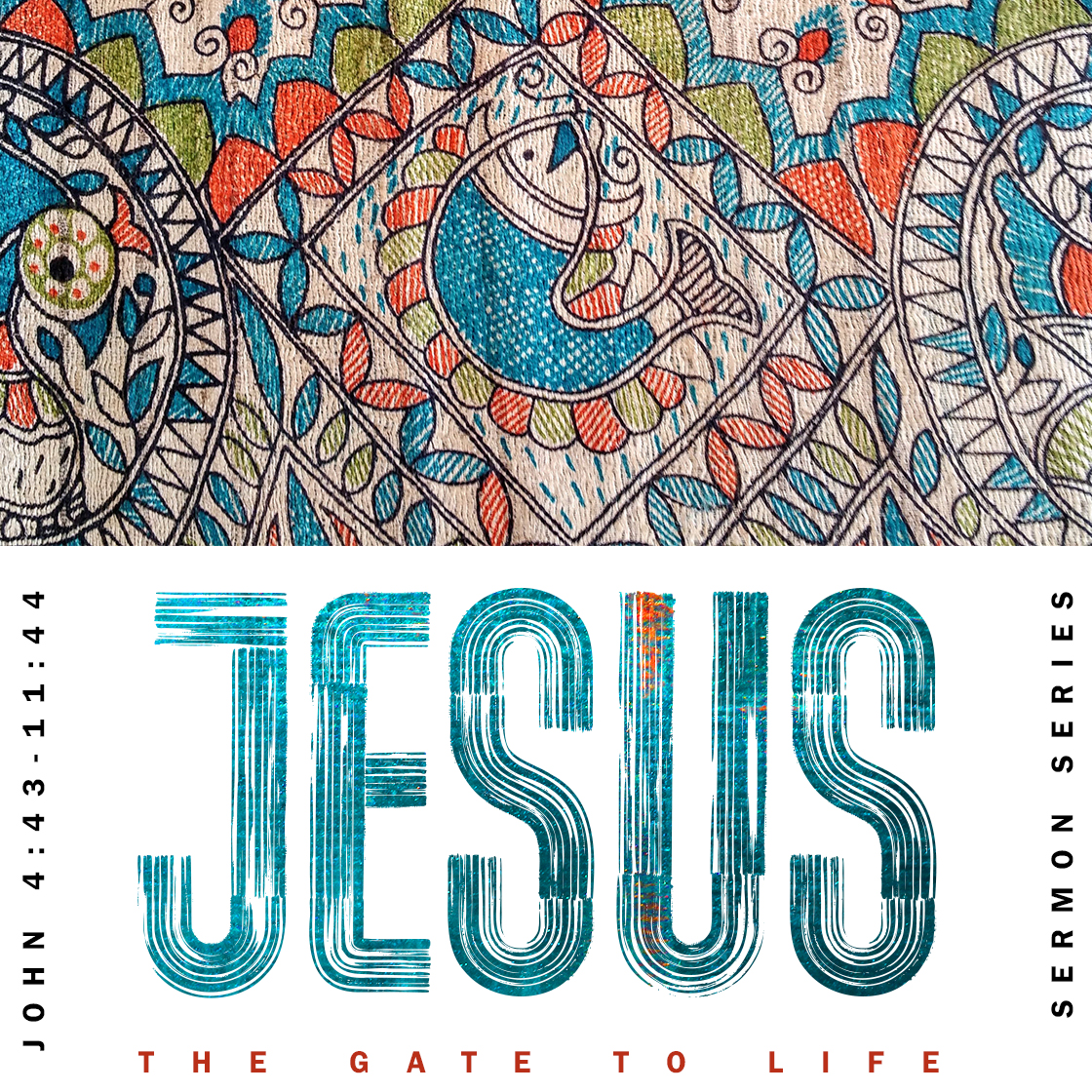Watch Sermon
Details
Series
Jesus: The Gate To Life
Date
12/3/23
Scripture
John 5:1-16
Speaker
Cody John Simpson
Reflection
Pray and meditate on this passage and compare the great difference between Jesus’ ways and our ways.
Notes:
- This world would be a really scary place if we didn’t have the help of friends and family. Think about it for a moment, how many of us in the last year have had help in some way from friends or family – a loan, a place to stay, someone to watch your kids while you work, wise advice and counsel through a difficult problem.
- It reminds us that the world has a very cruel underbelly. We need help from others so that we don’t get beaten and chewed up by everyone else’s selfish agendas.
- Guess what – We’re a society that is 1700 years into having been transformed by the gospel’s moral ethic, one of the most basic aspects is helping those in need. It was the church that introduced things like orphanages and hospitals into the ancient world, caring for the poor and needy. These things we consider basic aspects of human goodness arise in society through the influence of the church. When you go back and read about ancient societies there is a terrifying brutality in them that actually speak to human nature without the influence of God.
- As we look into our world today and we begin to slip backwards in rejecting the gospel, let’s remember how God’s design for human life is so much more “life-giving” and the world’s so much more “life-crushing”
- John 5:1-16
- Jesus is back in Jerusalem and comes to these famous pools. Commentators tell us that superstition held that the first person in the pool once the water stirred would be healed. The belief was that it was an angel that stirred it, but it likely could have been a natural spring.
- Jesus spots a man disabled for 38 years, and isn’t he a symbol of worldly misery?
- With no one to help him get into the pool when the water is stirred. Everyone is so desperate to get healed, that he gets left behind in his suffering. There is something brutal in this picture. Think of all these people, desperate in their illnesses and disabilities, in a world that shuns and rejects them, and because there is no help in the world they turn on each other for the slim chance to help themselves. Their desperation has brought out the ugliest of their humanity.
- And for what? The Bible doesn’t confirm anything here for us about miraculous healing, except that the water would occasionally bubble. Natural springs can be restorative and restful but they don’t heal. These people are hooked on deceptive superstition.
- Where no one has stepped in to help, Jesus comes to this man’s aid. Jesus with only a word heals this man’s affliction entirely. Jesus often commanded paralytics to carry their mat afterwards to show the reality of the healing they underwent.
- It’s not just that Jesus helped this man either. If we take a moment and reflect on this exchange, there isn’t much there. I mean the guy barely answers Jesus’ question. We’re accustomed to helping others who we know, or who can help us down the road (family, friends, etc), or at least people that we like or appreciate in some way. There is none of that here!
- In fact we see that this guy never bothers to figure out who healed him and then when he does, turns his name over to the authorities. Not the kind of guy who “deserves” to be healed.
- All of this confronts and confuses our worldly human thinking. It tells us something deep about Jesus’ way of life. In the world we’re not only lucky to be helped or give help, but it has to be deserved or earned somehow. But not with God. Jesus has helped the most undeserved, before it was even requested. That is magnificent grace and love, that gives and not only expects nothing back, but accepts hurt in return!
- In response to this incredible act of grace how does the world respond? V15-16 the authorities begin persecuting Jesus. In John’s gospel this marks a turning point where the authorities begin active opposition against Jesus’ ministry.
- You see it wasn’t helping others that got Jesus into trouble, it was helping in the wrong way. To the authorities Jesus was violating the sabbath law and so he essentially healed on the wrong day.
- Interestingly, all this sabbath violating in this passage wasn’t Biblical sabbath-breaking – it’s not in the Bible, but rather in the Jewish oral laws that developed out of scripture that were broken.
- What this means is that Jesus’ helping was actually a threat to their power. For the Jewish authorities religious piety, righteous rule following trumped compassion. And Jesus was threatening to undo all of this.
- We see it expressed from every angle in this story, and it’s all around us in the world, but we ignore it because it’s too scary to face. The world is a brutally selfish place. In the face of the world we’re all nobodies and it doesn’t matter how poorly we live and how quickly we die.
- Crowds of disabled people denying each other a presumed chance at healing so that they could be the one. On top of it the whole thing being a lie. One example of the world’s many illusions and pipe dreams that simply exploit the needy and desperate.
- The one whom Jesus helps actually rejects Him!
- The authorities, threatened by a display of genuine love for others, begin plotting a way to make sure this never happens again. No good deed goes unpunished!
- Where the world is dark, God’s love is bright. Jesus stands out in this bleak picture as the true testament of hope. For the weary travelers of this broken world, we can all come to Him to find our rest.
- Wherever we are waiting by a pool hoping for a miracle, Jesus is there to offer us something real. He restored this man’s life by healing his disability. Jesus can restore our lives ultimately by restoring our souls, and reconciling us to God the Father.
- In Jesus there is eternal life. That includes a fulfilled life now lived to the glory and in harmony with our God our creator.
- Jesus died on our behalf because of our personal sin and brokenness, and when we believe in Him – His death and His resurrection from the dead, God gracefully forgives us. This is given to all of us freely – just like the guy at the well! You might be doubting if you deserve such a wonderful thing, but again just like the guy at the well, none of us deserve it yet God loves us so much that He blesses us anyway.
- Because of this we can look on Jesus’ death on the cross and see it as a victory over sin and death, because through it we are freed from the penalty of sin and gain eternal life. The Bible says we are not only free from the penalty of sin but also slavery from sin (Rom 6:18) which means we can live this new life differently, not patterned off the selfishness of our broken world.
- Notice that Jesus says to the healed man to “not sin anymore” in verse 14. There is an expectation about what comes after an encounter with Jesus – it is life changing.
- The gospels are repeatedly clear that sickness and infirmities are a general result of sin and brokenness from the world, and not always from specific sins of the individual. But that never means it sometimes isn’t so, and this verse makes that clear. This man’s disability was a result of sin, and Jesus is warning him of going back into that pattern of sinfulness. This should really make us think about how we are living after we’ve been given new life from Jesus.
- We are to live in the way exemplified by Jesus. We all can find ourselves in this story in general ways, pushing others behind us to help ourselves first, thanklessly accepting help and not giving in return, or using someone else’s generosity to stir up jealousy and hate in our hearts. Beware, lest this selfishness sink into our bones and we begin to literally carry our brokenness in our bodies.
- Rather, let’s follow Jesus. Let’s give when others take, let’s find ways to give life, make life easier, help others in need. Love when it hurts, and love when its not convenient. Let’s come alongside others who are doing the same, even if we lose a little in the process. And let’s bring others to the King, the one who has the power to restore life so that many others can receive the blessing of forgiveness and reconciliation with God the Father, and gain a new lease on living for Him.
Reflection:
This week pray and meditate on this passage and compare the great difference between Jesus’ ways and our ways.

